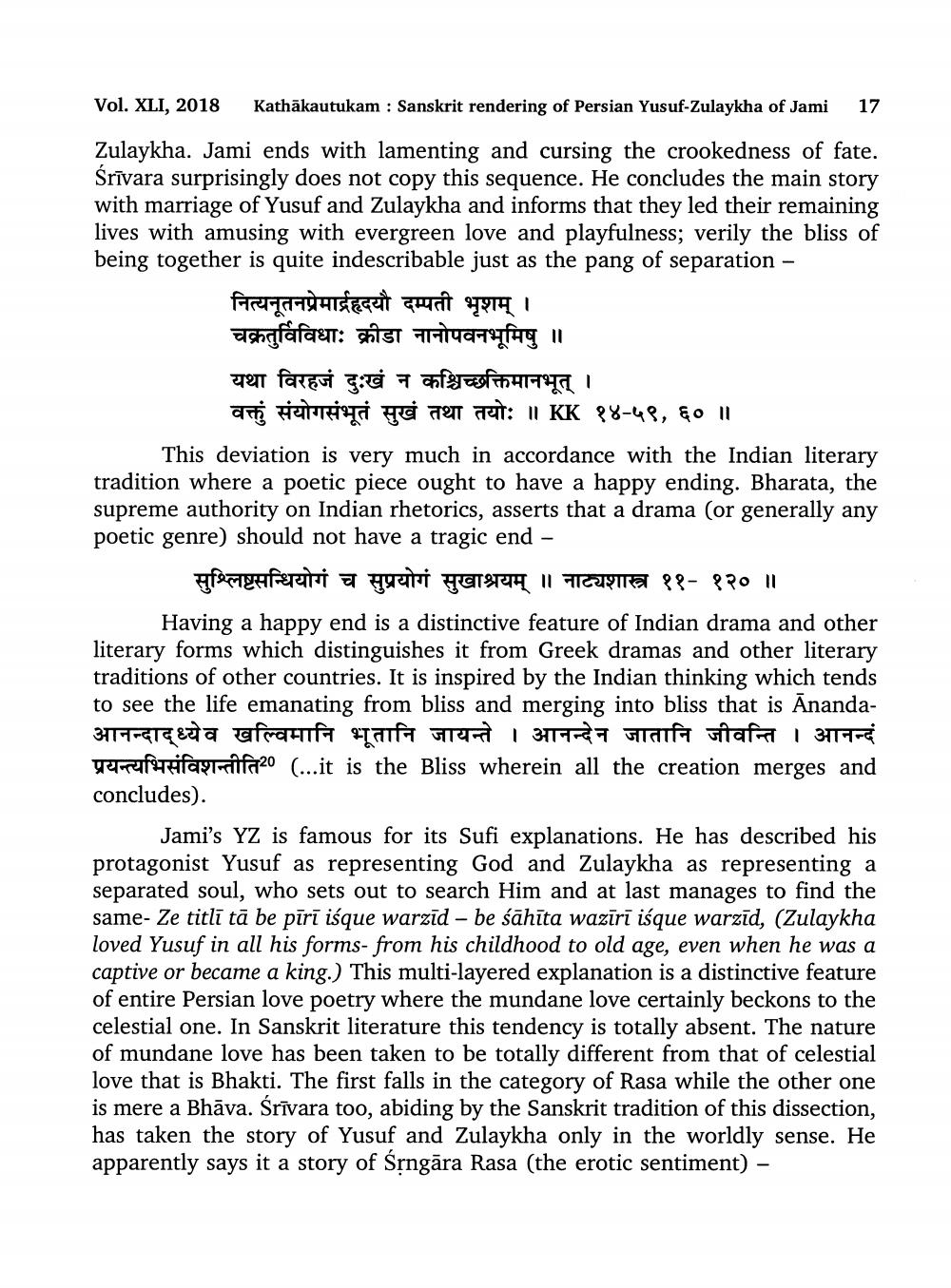________________
Vol. XLI, 2018
Kathākautukam : Sanskrit rendering of Persian Yusuf-Zulaykha of Jami
17
Zulaykha. Jami ends with lamenting and cursing the crookedness of fate. Srīvara surprisingly does not copy this sequence. He concludes the main story with marriage of Yusuf and Zulaykha and informs that they led their remaining lives with amusing with evergreen love and playfulness; verily the bliss of being together is quite indescribable just as the pang of separation -
नित्यनूतनप्रेमाहृदयौ दम्पती भृशम् । चक्रतुर्विविधाः क्रीडा नानोपवनभूमिषु ॥ यथा विरहजं दुःखं न कश्चिच्छक्तिमानभूत् ।
arti terini yei 72 neit: 1 KK 28-48, &o II This deviation is very much in accordance with the Indian literary tradition where a poetic piece ought to have a happy ending. Bharata, the supreme authority on Indian rhetorics, asserts that a drama (or generally any poetic genre) should not have a tragic end -
सुश्लिष्टसन्धियोगं च सुप्रयोगं सुखाश्रयम् ॥ नाट्यशास्त्र ११- १२० ॥
Having a happy end is a distinctive feature of Indian drama and other literary forms which distinguishes it from Greek dramas and other literary traditions of other countries. It is inspired by the Indian thinking which tends to see the life emanating from bliss and merging into bliss that is Ānandaआनन्दाद्ध्येव खल्विमानि भूतानि जायन्ते । आनन्दे न जातानि जीवन्ति । आनन्दं Verruftrifagilfa20 (...it is the Bliss wherein all the creation merges and concludes).
Jami's YZ is famous for its Sufi explanations. He has described his protagonist Yusuf as representing God and Zulaykha as representing a separated soul, who sets out to search Him and at last manages to find the same- Ze titlī tā be pīrī iśque warzīd – be śāhīta wazīrī iśque warzīd, (Zulaykha loved Yusuf in all his forms- from his childhood to old age, even when he was a captive or became a king.) This multi-layered explanation is a distinctive feature of entire Persian love poetry where the mundane love certainly beckons to the celestial one. In Sanskrit literature this tendency is totally absent. The nature of mundane love has been taken to be totally different from that of celestial love that is Bhakti. The first falls in the category of Rasa while the other one is mere a Bhāva. Srīvara too, abiding by the Sanskrit tradition of this dissection, has taken the story of Yusuf and Zulaykha only in the worldly sense. He apparently says it a story of Śrngāra Rasa (the erotic sentiment) -




